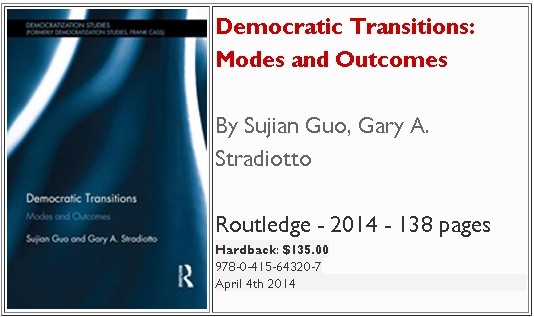Democratic transitions have occurred in many countries in various regions across the globe, such as Southern Europe, Latin America, Africa, East and Southeast Asia, Eastern Europe and the Middle East, and these nations have undergone simultaneously political, economic and social transformations. Yet, the patterns and characteristics of transitions have varied significantly, and different modes of transition have resulted in different outcomes. This book offers cross-national comparisons of democratic transition since the turn of the twentieth century and asks what makes democracies succeed or fail. In doing so it explores the influence the mode of transition has on the longevity or durability of the democracy, by theoretically examining and quantitatively testing this relationship. The authors argue that the mode of transition directly impacts the success and failure of democracy, and suggest that cooperative transitions, where opposition groups work together with incumbent elites to peacefully transition the state, result in democracies that last longer and are associated with higher measures of democratic quality. Based on a cross-national dataset of all democratic transitioning states since 1900, this book will be of great interest to students and scholars of international politics, comparative politics and democracy, and democratization studies. Content 1. Introduction 
专著内容简介
本书旨在理论上探讨并定量测试和比较分析1900年以来全球各地区发生的民主转型模式与民主转型后果之间的相互关系。基于 1900 年以来民主转型数据的跨国比较研究,本结果显示,民主转型模式对民主成败即民主成活率有直接的影响,合作型民主转型,即体制内精英与体制外力 量合作互动以实现和平民主转型,与其他转型模式相比,民主成活率最高,民主质量也最高。
Description
2. Modes of Democratic Transition
3. A Theory of Explaining Success Rate of Democratic Transitions
4. Research Design and Empirics
5. Democratic Prospects
6. Conclusion

